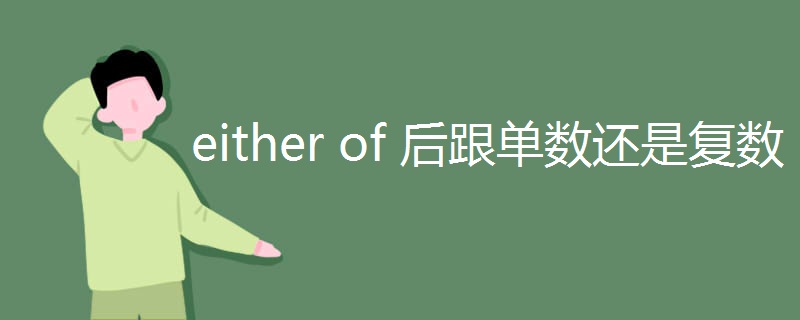-
-
either of谓语动词用单数。either of 通常用于表示两者中的任何一个,用于否定句中,或者用于表示两者之间的选择。当 either of 用作代词时,意为“两者之一”,并且后面通常与 of 连用,后接名词复数。

either of例句
Does either of the parties want to stop the fighting?
双方中没有一方想停止战斗吗?
She drove away before either of them could speak again
没等他俩中任何一人再开口,她就驾车而去。
Do either of you smoke cigarettes or drink alcohol?
你们俩有人吸烟或喝酒吗?
Mary was a better rider than either of them and she excelled at outdoor sports
玛丽的骑术比他们俩都要好,而且她擅长户外运动。
In Britain, we have so far escaped, in large measure, either of these afflictions.
在英国,我们迄今为止已经远远地避开了这两类麻烦。
either和neither的用法及区别
连词不同:either可以和or连用,表示“或是…或是…”。在连接并列的主语时谓语动词一般和邻近的主语一致;用于否定句中,表示“既(不)…又(不)”;neither用作连词常与nor一起连用,连接两个相同成分,如两个主语或宾语,意思是“既不…也不”。
意思不同:either和neither均用于指两者,either意为“两者之一”“任意一方”,neither意为“两者都不”。两者均可直接修饰名词,但被修饰名词要用单数形式。
位置不同:neither可用在句子的开头或用在简略答语中,表示“也不”, neither前可有and或but,后接倒装语序。either一般只用于否定句,多位于句末,在口语中有时也可放在否定句中的名词后加强语气。